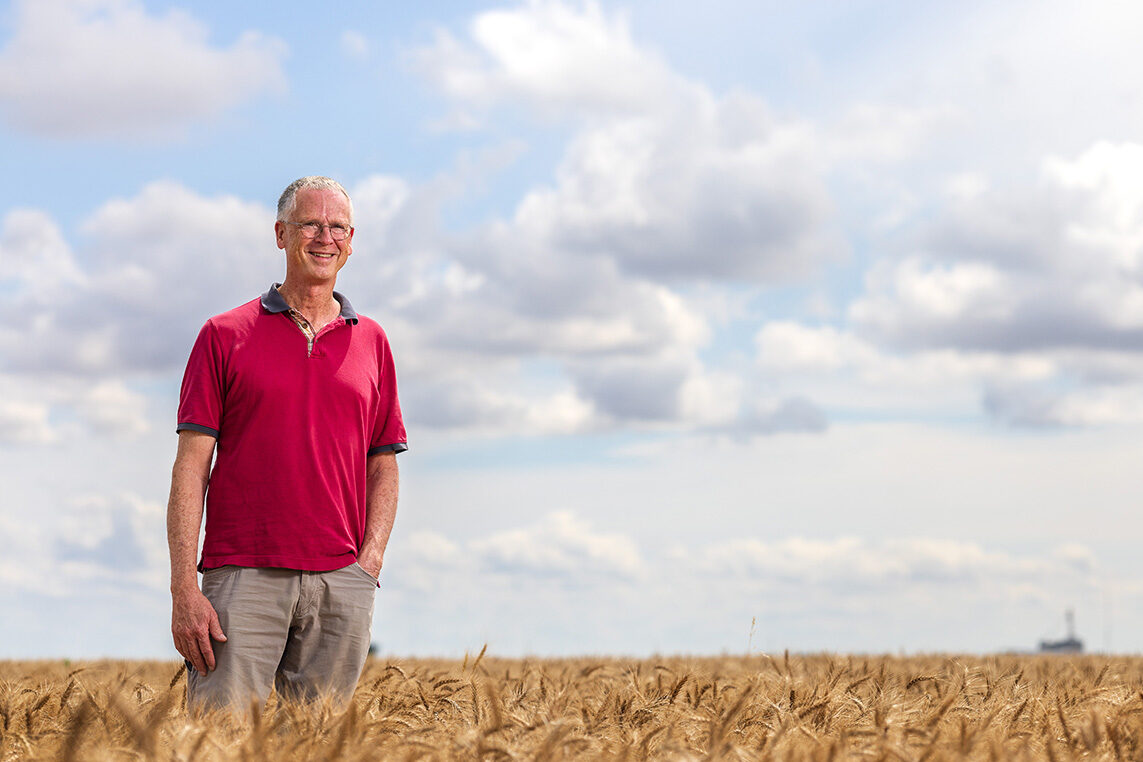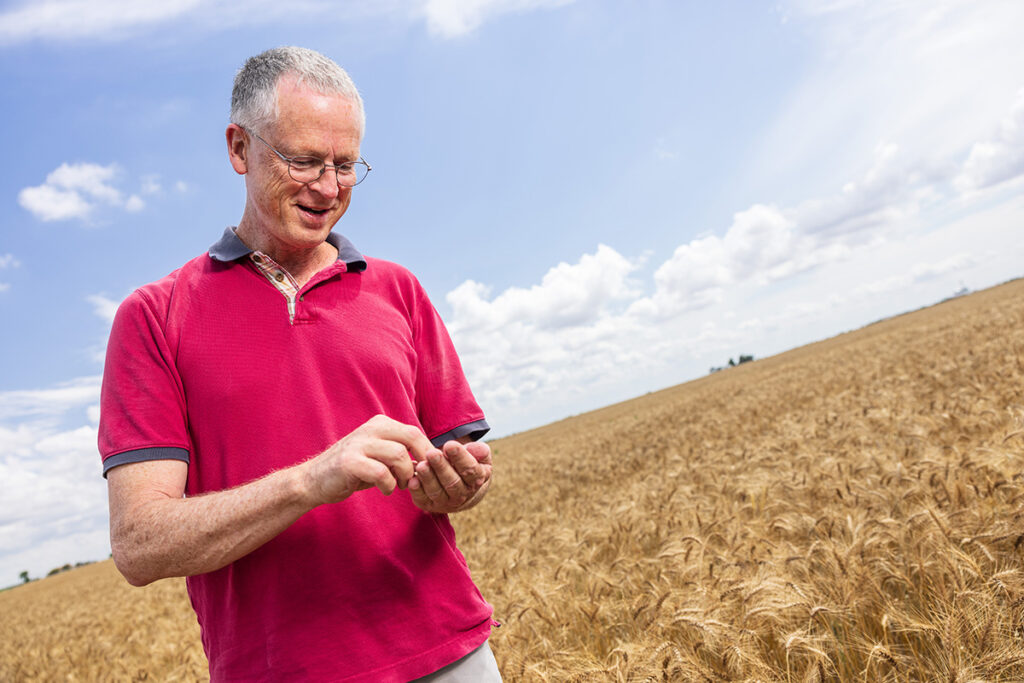As you travel through the state, you are likely to drive past numerous fields of gold … wheat. While the fields may be in various stages of growth from the green wheat pastures that cattle feed on through the winter to the golden fields waving in the wind before harvest time, the crop is a longtime stalwart of Oklahoma agriculture as the number one crop grown in Oklahoma and is a major economic driver for the state.

Keeff Felty, Jackson County Farm Bureau member, has spent years growing wheat alongside cotton as a fourth-generation farmer in southwest Oklahoma. His agricultural background, combined with a call to service, led him to represent fellow wheat farmers on the National Association of Wheat Growers board.
Like many farmers, Felty focuses daily on growing quality crops. When he received a phone call from a longtime family friend and neighbor, he did not realize it would turn into a call to serve fellow wheat farmers around the state and nation.
“One day I got a call from Bob Howard, and he asked, ‘Felty, are you busy?,’” Felty said. “I told him, ‘Well, I’m not terribly busy, we are doing this and that.’ That is when he asked me, ‘Do you have time to serve?’”
Felty said “yes,” and began serving on the Oklahoma Wheat Growers Association board, which evolved into an opportunity to serve on the NAWG board.
Felty has been a NAWG board member for five years, and he is headed into his sixth year in leadership with the organization as he currently serves in the position of past president.
“In NAWG, we start at the secretary position then go to treasurer, vice president, president and finally past president,” Felty said. “However, due to COVID-19, I was able to serve another year as secretary.”
Felty said it is by design that leaders work their way through all the leadership positions, constantly learning and preparing for the role to be president and past president. This exposure to numerous facets of the organization and the wheat industry provides a full view of the important role wheat plays around the nation.
“Wheat is unique,” Felty said. “It is grown in nearly all 50 states reaching coast to coast. There are six different classes, and they are all distinct and unique. We represent them all.”
NAWG serves as an advocacy group for wheat farmers and the industry with 20 members states involved. It is a voluntary dues-based organization that advocates for positive policies for farmers and the wheat industry, Felty said.
“Anything that deals with lobbying, legislation or rules that touches wheat production, we are the advocacy group and voice,” Felty said of NAWG. “The lobbying and interactions are to make sure legislation rules that impact wheat are administered properly.”
Felty said another important role the organization plays is to make sure rules and legislation are not too egregious or detrimental to production agriculture, and to wheat in particular, he added.
“We basically have two functions committees: domestic trade and policy and then environmental and research,” Felty said.
“It is much more than wheat. There is a lot of overlapping in agriculture, and we all know that we are better together.”

As a NAWG leader, Felty represented the wheat industry in a multitude of ways, from attending a wide array of meetings to representin the industry by participating in functions across the agriculture spectrum. One highlight for Felty was the once-in-a-lifetime opportunity to testify on the farm bill in front of a U.S. Senate ag subcommittee with fellow producer groups.
“It was really an exciting experience,” Felty said. “Not everyone gets to do something like this, which makes it more unique.”
Since being on the NAWG board, Felty said he has become more knowledgeable and aware of what is going on in the wheat industry. He said that while it is impossible to know everything happening in the industry, agricultural producers need to have insight into the areas of agriculture that are important to them.
“You need to have a functional knowledge of the industry and be able to communicate your concerns and solutions,” Felty said. “It is crucial to be able to navigate these things in a way for the industry to understand.”
Through his time on the NAWG board, Felty gained a new understanding of the unique and distinct differences amongst wheat production in different states. Felty has gained a deeper understanding of the commonalities that unite all wheat producers. Felty said that is why NAWG is so beneficial for farmers as it connects wheat producers to make sure their crop – and the industry – is the best it possibly can be.
“That is why NAWG is so important,” Felty said. “Somebody may be having an issue somewhere that is going to turn into everyone’s problem. If you can get on top of the problem, then you can avoid it becoming everyone’s problem down the road.”

NAWG is not the only organization that benefits the wheat industry, Felty explained. Alongside NAWG is U.S. Wheat Associates, which primarily focuses on the marketing, trade and development side of the industry. The National Wheat Foundation forms another critical piece of the industry and focuses on research and education.
“We are the ultimate environmentalists,” Felty said of farmers. “If we do not take care of the environment, then we lose our greatest tool and asset.
“There are people out there not wanting us doing what we are doing. They are telling our story to their satisfaction, and we need to take it upon ourselves to tell it correctly for everyone’s benefit.”
Having answered a call to serve years ago – a decision that has since provided opportunities for him to serve farmers across the nation – Felty now encourages fellow agriculturalists to find the time and commit themselves to serving the industry to pave the way for the next generation of leaders.
“Being involved is important especially when telling our ag story,” Felty said. “If we are not telling our story, then someone else is.”
